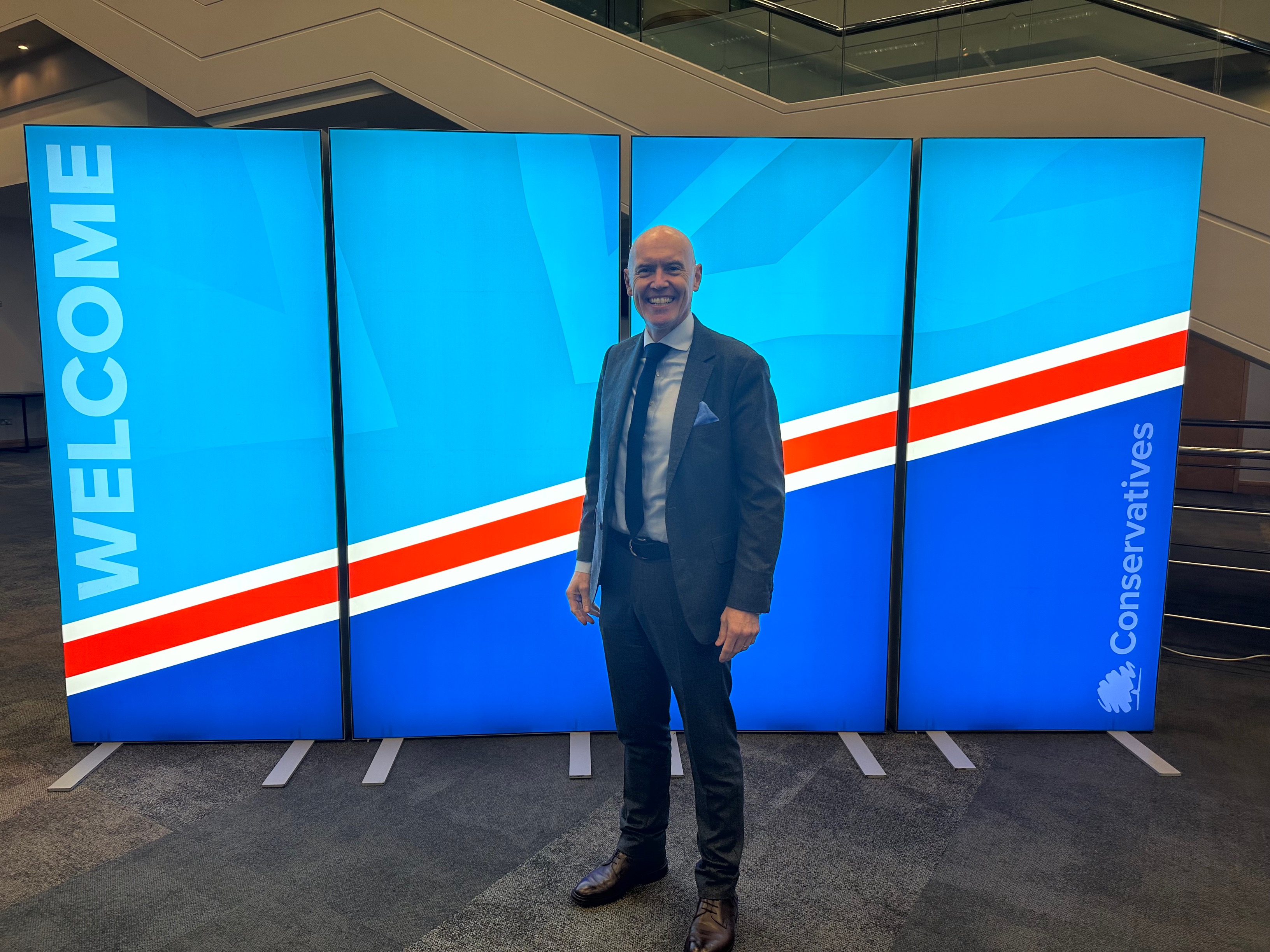
The Institute of Export & International Trade’s public affairs adviser, Grace Thompson, last week attended the Conservative Spring Forum’s ‘Business Day’, alongside the organisation’s director general, Marco Forgione, and external affairs director, Chris Martin.
In this blog, she recounts the many talking points and learnings from the event.
Mindset shift
“We need a mindset shift”.
My ears pricked up at the Business Day at Conservative Spring Forum as John Glen, chief secretary to the Treasury, remarked that a “mindset shift” was needed in trade and that it was important to work sector by sector, discovering what export barriers are in place and then providing direct support to each sector.
Phrases like: “we need to get behind exports” and the need to “work out the context for growth enablement” were music to my ears.
Also interesting was the much firmer rhetoric on friendship with the EU, with Glen saying that we need to “reset the dynamic” and not be “hostile to our biggest trading partner”. Emboldened by progress on the Windsor Framework there seems to be an increasing warmth again in EU relations, which could lead to positive side-effects for trade.
As I reflected on the conference later, the Business Day had indeed seemed to be about emphasising a “mindset shift”, with new leadership under prime minister Rishi Sunak seeing business approached in a more professional way.
On a journey
Jeremy Hunt MP, Chancellor of the Exchequer, took to the stage soon after Glen for an ‘In Conversation’ style piece.
My director-general, Marco Forgione, asked the Chancellor about how more support could be provided to exporters through the creation of a comprehensive industrial strategy, encompassing import and export strategies.
Hunt responded that the “four Es” approach he laid out in a speech at Bloomberg a few weeks ago was what he considered to be an industrial strategy. He also acknowledged that an import strategy is “incredibly important post-pandemic” given the disruption the country had seen with supply chains. He also cited the importance of helping businesses to expand, but noted the difficulty of scaling up issues for smaller businesses.
In a later point that seemed quite targeted on foreign relations policy, he noted that free trade is the “foundation of prosperity” but that it must be free trade “with our eyes open”.
Trade is built on relationships
The highlight of the day, from my perspective, was the interview with Kemi Badenoch MP, secretary of state for business and trade. Her straightforward answers to questions seemed to be appreciated by delegates around the room.
In a point that, though perhaps obvious, was quite poignant, Badenoch spoke about how “trade is built on relationships” and that the progress on the Windsor Framework had been aided by the fact that the prime minister had brought “warmth” to the EU relationship again.
Following comments earlier in the day, she also touched on the possible need for an industrial strategy going forward and encouraged SME businesses in the room to let her know about export barriers they are coming up against, building on the progress she has already made in her department on opening up markets to UK businesses.
Finally, touching on a topic which trade policy wonks were watching keenly last week, Badenoch despaired of the dissolution of the International Trade Committee, noting that the trade agenda would be quite likely to be swallowed up by wider business content on the re-formed Business and Trade Committee. Murmurs of assent were heard around the room.
Final thoughts
Having now picked up my second branded notebook from political party business days, I can begin to draw a bit of a comparison between the Labour and Conservative Business Days.
The Labour Business Day had been a slick and polished event in Canary Wharf, with Labour clearly positioning itself as now deserving the title of the “party of business” after internal Conservative Party chaos last year.
The Conservative Business Day felt like an attempt to return to sensible and professional politics, as well as stable relationships with the business world. The phrase “party of business” was peppered in speeches throughout the day as they seek to win back the title.
Whether it will be enough to reassure the business world remains to be seen – for quite a number that I spoke to over pastries and overly bitter coffee, they still need convincing.



